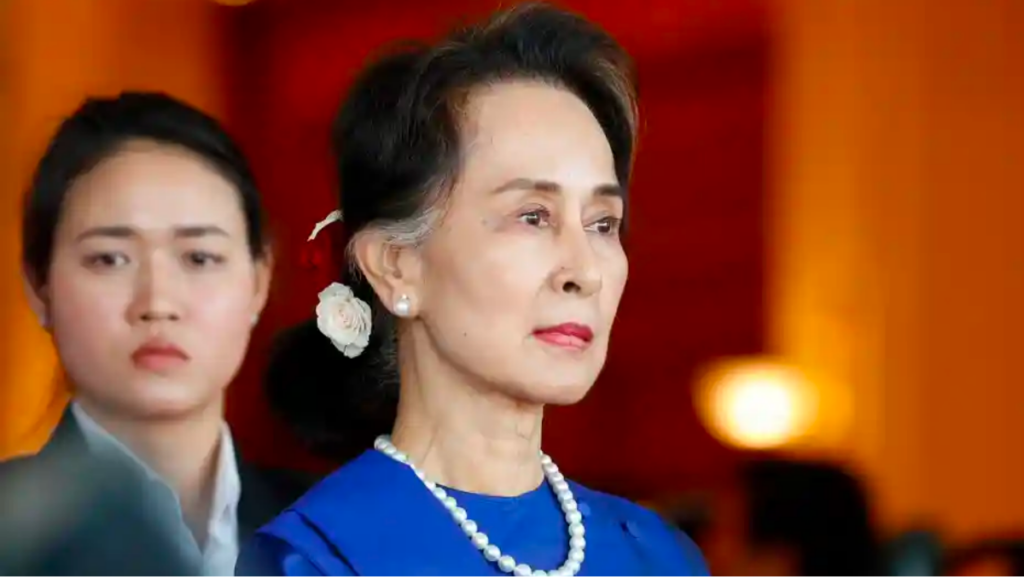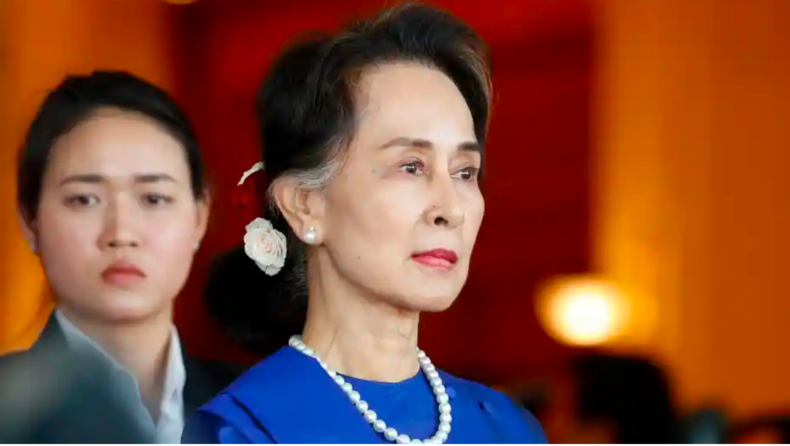
The Junta has granted Aung San Suu Kyi and Pres. Win Mynt a partial pardon
Malaysian state media and trusted sources have said that the country’s ruling military ‘Junta’ has granted former democratic leader Aung San Suu Kyi a partial pardon for 5 offences out of the 19 for which she was convicted. However, she will remain under house arrest.
A spokesperson for Junta, Zaw Min Tum has said that this means Suu Kyi will now have to serve only 28 years out of her original 33 year jail term. He elaborated that the move was part of a clemency under which over 7000 prisoners were set free from the conflict-torn country, also including former President, Win Myint.
Aung San Suu Kyi’s detention post 2021 military coup in Malaysia
Suu Kyi who was reportedly shifted to house arrest from prison has been in detention since the military coup of Malaysia that overthrew her government in February 2021.
She has pled ‘not guilty’ to all 19 charges against her, which include incitement, election fraud and corruption among others.
The military coup d’état of Malaysia occurred in February 2021 in which Suu Kyi’s democratically-elected government was toppled.
The civilian population rejected the coup and responded with civil disobedience, protests, and persistent armed resistance against the military rule.
History of Malaysian government: Post independence
Myanmar (formerly known as Burma) has been under military rule for the majority of time since it attained independence from the British in 1948.
The first military coup since then was in 1948, since which the military maintained power over the country for decades despite insurgencies.
History of Malaysian government: New constitution
However, domestic and international pressure reached a head in 2008 when a draft of a new constitution that would provide civilian rule was ratified, to come into effect in 2010.
Although the country was officially under civilian rule, the military had still made provisions in the constitution that allowed it to hold considerable economic, political, and legislative power.
During the country’s first truly free and fair elections in 2010, NLD’s (National League for Democracy) Aung San Suu Kyui was appointed as the ‘state counselor,’ with another party member being president, beating the military-aligned USDP (Union Solidarity and Development Party).
The 2020 election brought an increasing majority for NLD, however the results were rejected by the USDP and military which claimed irregularities and fraud, asking for a poll rerun.
These claims were rejected by the electoral commission stating that there was no reasonable evidence of widespread election fraud, a rejection that was backed by international and national election monitors.
In late January, the military asked for a delayed opening of the parliament, which was rejected, post which it warned that the constitution could be revoked if laws were not being respected, which triggered citizens.
The military coup of Malaysia in 2021
On 1st Feburary 2021, on which was scheduled the first meeting of parliament, the military seized power.
President Wyn Myint, Aung San Suu Kyi and other members of the NLD were detained, and military-appointed vice president Myint Swe became president.
The junta invoked a national Emergency for a year, granting all governmental powers to the Chief of the Armed Forces–Senior General Min. It was announced that new elections would be held after the Emergency.
Responses to the coup and current developments
The coup received condemnation on the international stage as well as protests by citizens domestically.
In April, a National Unity Government, acting as a shadow government, was established to oppose the military’s administration. Over the subsequent months, a loosely organized armed resistance also emerged. The junta responded to both peaceful protests and armed resistance with severe measures. A little over a year after the coup, the nation found itself in a state of humanitarian crisis and economic turmoil.
The junta has since extended the Emergency and postponed elections.












